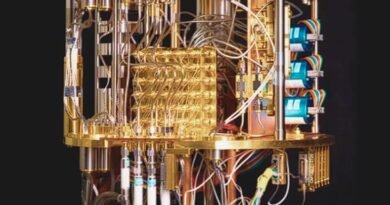Revolutionizing Battery Technology: Quantum Batteries Charging Faster through Indefinite Causal Order

The future of batteries could witness a revolutionary shift as researchers explore quantum effects, specifically the concept of indefinite causal order, to potentially enhance charging efficiency. Unlike conventional batteries, which convert electrical energy into chemical energy on a large scale, quantum batteries might exploit the peculiar nature of quantum mechanics to enable faster and more efficient charging.
In a recent proof-of-principle experiment outlined in the journal Physical Review Letters on December 14, scientists demonstrated that quantum batteries could capitalize on the scrambling of cause and effect within the quantum realm. Yuanbo Chen, a physicist at the University of Tokyo and co-first author of the study, explained that recent advancements in theoretical physics suggest scenarios where cause and effect can be simultaneously true, challenging traditional notions of linear causality.
Quantum superposition, a principle allowing particles to exist in multiple states until observed, plays a key role. This probabilistic state, which collapses into a definitive outcome upon observation, has been the focus of various experiments defying our intuitive understanding of reality. Notably, the phenomenon of indefinite causal order was observed in 2009 using a quantum switch, where a photon split into two versions, each following a different path and experiencing events in a different order.
Researchers, intrigued by this causality-scrambling concept, pondered its application in quantum batteries. By comparing three charging methods – sequential, simultaneous, and superposition – they theorized that a causally-scrambled charger in a quantum superposition could deliver energy more efficiently than traditional high-power chargers. A proof-of-principle experiment using light photons through a quantum switch validated their calculations, showing that individual photons had indeed been causally scrambled.
The next challenge for scientists involves translating these theoretical concepts into a physical quantum battery capable of holding a charge. While experimental efforts in the realm of quantum batteries are still in their early stages, the potential for groundbreaking advancements in charging technology is on the horizon. The timeline for conclusive outcomes remains uncertain due to the ongoing interplay between experimental exploration and theoretical developments in quantum battery research.








